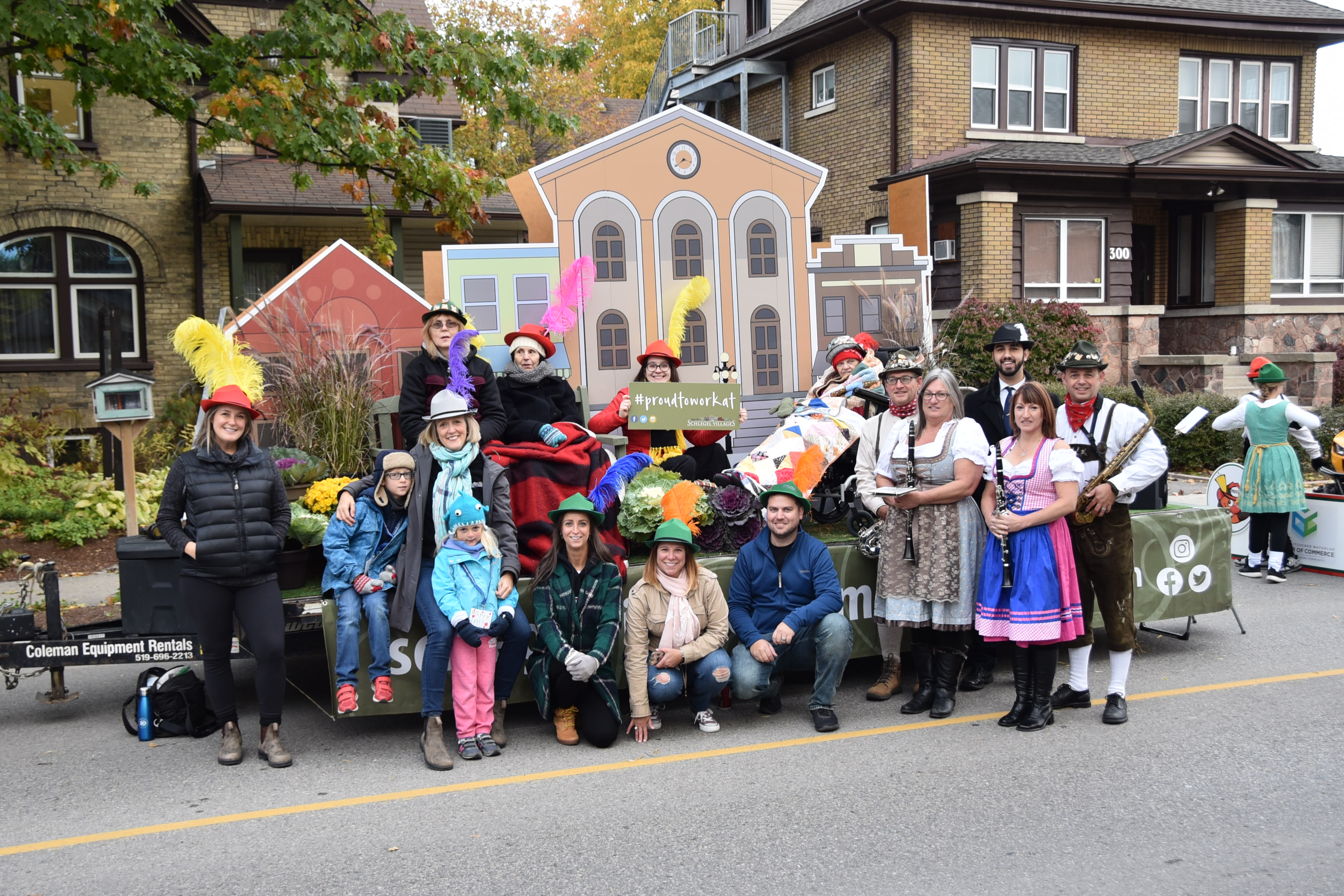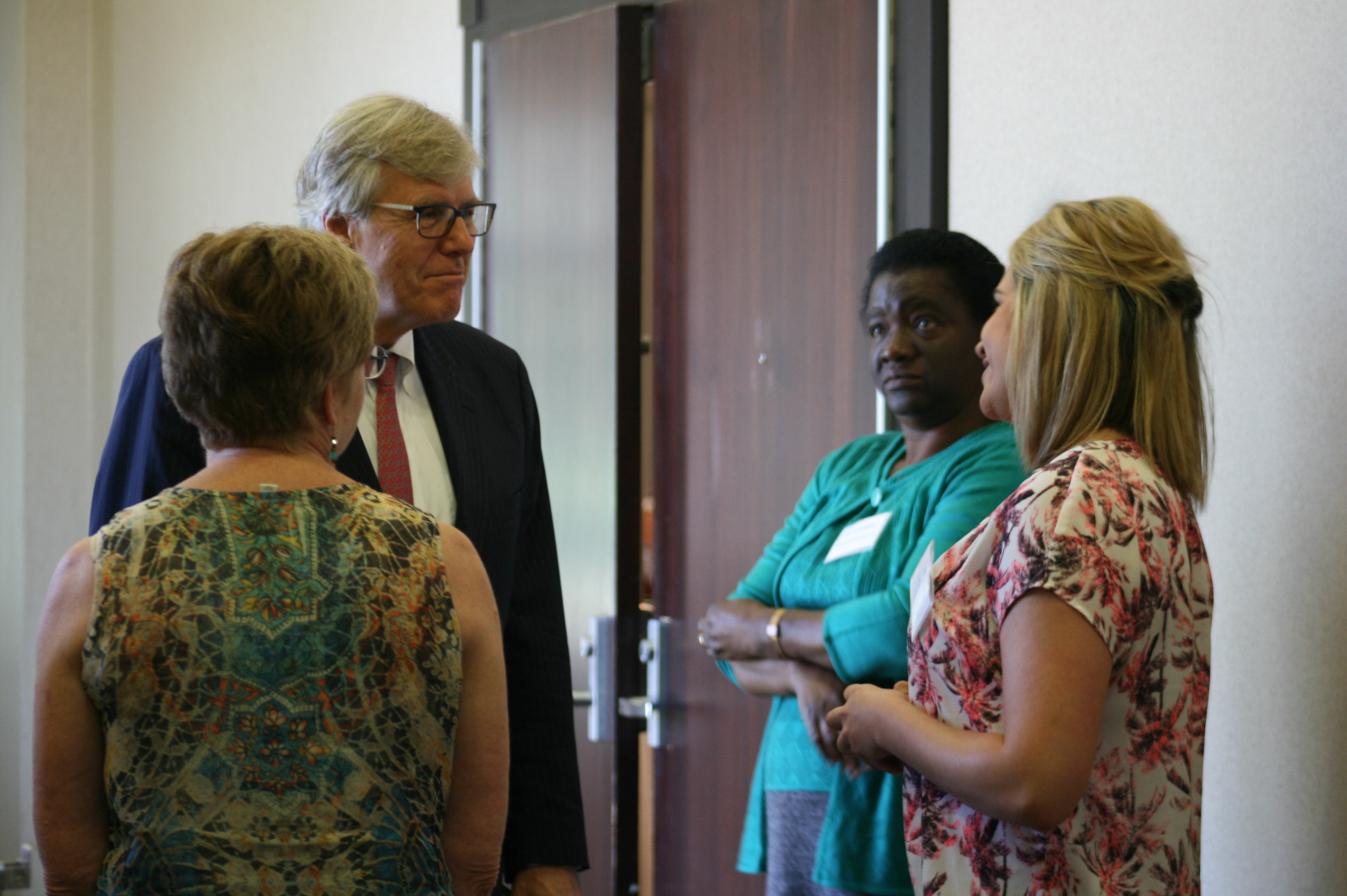Like many people, Ron Droulliard had never given much thought to the idea that the language people use in their day-to-day conversations can have a major part to play in the perpetuation of stigmas and stereotypes. When he returned home after a meeting in Toronto focused on the subject of non-stigmatizing language for people living with dementia, however, he had a different perspective.
The meeting, organized by the Behavioural Supports Ontario Provincial Coordinating Office in partnership with the Alzheimer Society of Ontario and Schlegel-UW Research Institute for Aging, focused on dementia and the role of language in stigmatizing those who are living with the changes a diagnosis presents. Through his own personal experience, Ron had much to offer and said he was thankful to have been asked to join the group alongside Pat Smola and Brittney Krooger from University Gates and David Kent from Erin Meadows. His sense of self-worth as someone living with dementia rose, he says, knowing that his opinions were valued among those offered on the expert panel.

Panel members focused on non-stigmatizing language for people living with dementia.
It’s no easy task, Ron admits upon reflection, to change the way people speak to and about people who are living with dementia and Alzheimer’s disease, yet change is absolutely necessary. In fact, the way people speak about older adults in general tends to diminish their sense of value, no matter where they live or what health challenges they may or may not have.
“People don’t really realize what they are saying,” Ron says, bringing up an example offered at the beginning of the November meeting. “There’s a stewardess on a plane and she’s coming down the aisle asking different people if they wanted a drink. There was an elderly lady sitting there and the stewardess says ‘Hi, Sweetie,’ would you like something to drink?’ ”
No harm was meant in the exchange, Ron Points out, but would a 35-year-old woman in a power suit ever be called ‘Sweetie’? Likely not, Ron suggests, yet this type of language is all too common for older adults, especially those in care settings.
“This is what we’re trying to get away from,” Ron says, suggesting that future caregivers, such as nursing students or those studying to be personal support workers, should discuss non-stigmatizing language in class, long before they ever have a personal connection with someone who needs their support.
Natalie Hall, a PSW from The Village of St. Clair who joined Ron at the meeting and shared her perspective as a panelist, agrees. When she was in school nearly ten years ago, the subject matter was almost entirely clinical, she says, with little attention paid to the importance of respectful communication.
“I know there’s more morality and ethics put into place now in education, but even more-so there should be a whole section on non-stigmatizing language,” Natalie says. Change can’t happen if people don’t realize there’s a problem and are offer no alternative understandings so Natalie and Ron are both proud to be part of the group helping to map out more appropriate language.
“You can’t change things overnight,” Natalie says, but certainly one word and one term at a time, progress will spread.
On November 15, 2017, the first in-person meeting took place for members of the Non-Stigmatizing Language (Dementia Focus) Expert Panel, brought together by Behavioural Supports Ontario Provincial Coordinating office. Members of this group are from diverse experiences including those with lived experience, care partners, health care providers, long term care providers, researchers, etc. This working group was formed following earlier discussions exploring the challenges associated with communication and language use around dementia. During the first in-person meeting, group members came together to create and inform on a set of guiding principles to promote the consistent use of person-centred language. The meeting allowed for facilitated conversation and key next steps were identified in moving this work forward. This work of this group will continue in 2018. Leadership of this group is provided by Kate Ducak (Research Institute for Aging) and Gagan Gill (Alzheimer Society of Ontario).
- Previous
- View All News
- Next


























































































































































































































































































































































































































































































